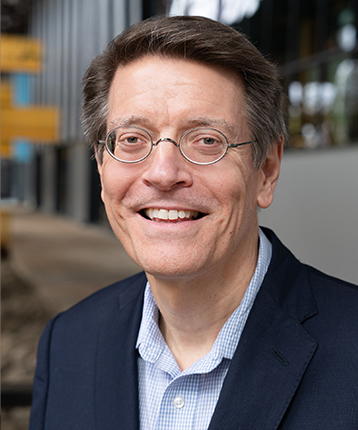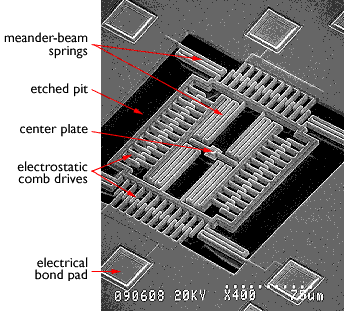
Dr. Gary K. Fedder
Howard M. Wilkoff Professor, Electrical & Computer Engineering and Biomedical Engineering
Vice Provost for Research
- REH 249
- 412 268 8443
REH 249
Carnegie Mellon University
5000 Forbes Avenue
Pittsburgh, PA 15213
Education
- B.S. and M.S., Electrical Engineering and Computer Sciences, MIT, 1982
- M.S., Electrical Engineering and Computer Sciences, MIT, 1984
- Ph.D., Electrical Engineering and Computer Sciences, University of California at Berkeley, 1994
Bio
Dr. Fedder earned his B.S. and M.S. degrees in EECS from MIT in 1982 and 1984, respectively. From 1984 to 1989, he worked at the Hewlett-Packard Company on circuit design and printed-circuit modeling. In 1994, he obtained the Ph.D. degree in EECS from the University of California at Berkeley, where his research resulted in the first demonstration of multimode control of an underdamped surface-micromachined inertial device. His research interests include design and modeling of microsensors and microactuators, fabrication of integrated MEMS with electronic circuits using conventional CMOS processing, and implantable microsystems. In 2007, he was elevated to IEEE Fellow for contributions to integrated micro-electro-mechanical-system processes and design methodologies. His awards include the 1993 AIME Electronic Materials Society Ross Tucker Award, the 1996 Carnegie Institute of Technology George Tallman Ladd Research Award, and a 1996 NSF CAREER Award.
Research
Dr. Fedder’s research interests are in the multidisciplinary area of microelectromechanical systems (MEMS), and focus primarily on design, fabrication, and control aspects of microsensor- and microactuator-based systems. In MEMS, micron- to millimeter-size systems with sophisticated abilities to interact with their environment are manufactured through the use of VLSI-based photolithographic batch fabrication methods. Benefits of this approach include much lower manufacturing cost, greater miniaturization, greater integration, and in many cases higher performance than can be achieved with conventional methods used to build systems requiring sensors and actuators.
The diverse set of research projects in my group links to a long-term trend toward low-cost intelligent systems that benefit from embedded MEMS, often merged with other emerging technologies, for example, nanomaterials, 3D printing and soft robotics. Active projects include MEMS system modeling and design methodologies, accelerometers and gyroscopes for motion sensing, an electrothermal microcooler system, ultra-compliant neural probes, piezoelectric energy scavenging for implantable pressure sensors, nonlinear parametric microresonators, and self-healing RF microresonator oscillators and filters. Challenges include system design, process integration, and physical modeling including environmental effects.
Research Interests: design and fabrication of integrated micro/nano-scale sensors and actuators; implantable microsystems; neural probe arrays

Awards and Recognition
-
IEEE Fellow, 2007
- AIME Electronic Materials Society Ross Tucker Award, 1993
- Carnegie Institute of Technology George Tallman Ladd Research Award, 1996
- NSF CAREER Award, 1996